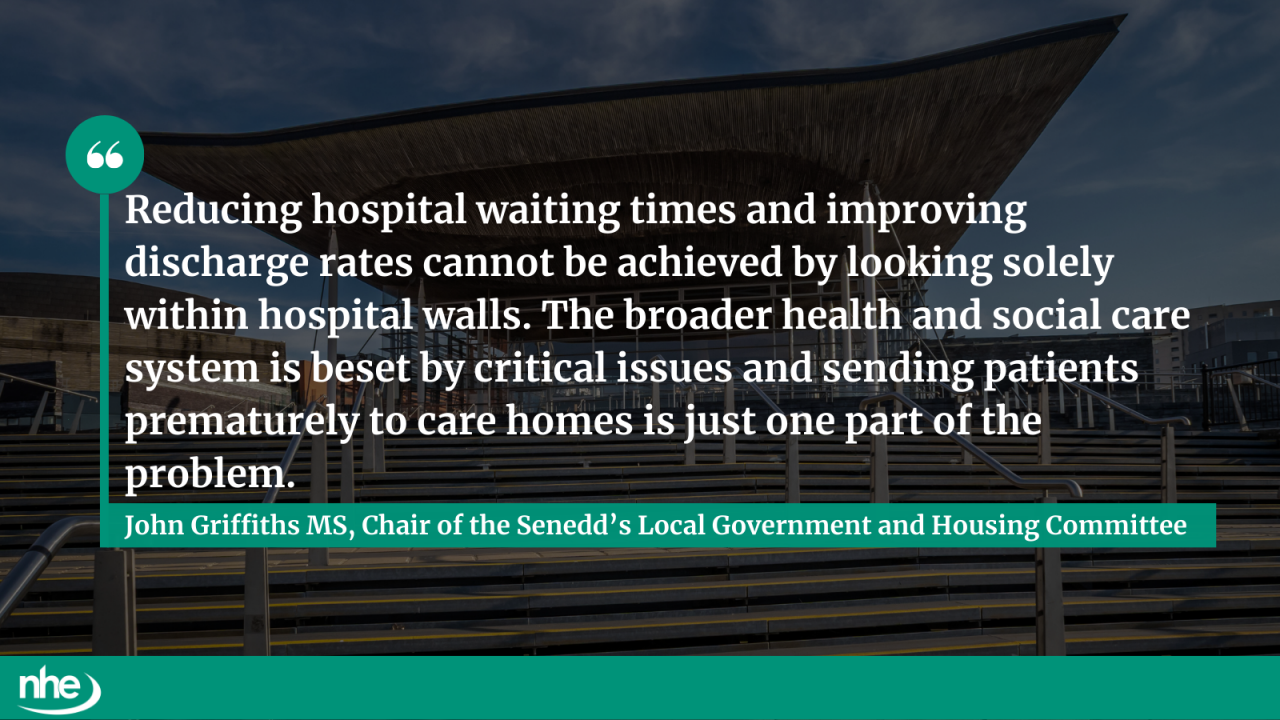The Senedd’s Local Government and Housing Committee has called on the Welsh Government to urgently reform the hospital discharge process and improve intermediate care services, following concerns that patients are being sent to residential care homes without proper rehabilitation support.
The Committee’s new report reveals that the current emphasis on freeing up hospital beds often comes at the expense of patient recovery. Many individuals who could regain independence through rehabilitation are instead placed in care homes temporarily – without access to recovery programmes – leading to long-term deterioration and permanent loss of independence.
Key findings include:
- Intermediate care placements must focus on recovery, with access to therapeutic or nursing expertise.
- Lack of appropriate care increases pressure on the NHS and social services, and contributes to rising costs.
- Early discharge with the option to return to hospital is being explored as a more effective alternative.
One positive example came from Lauraine Clarke, a patient from Kidwelly, who benefited from early discharge after treatment at Glangwili General Hospital.
John Griffiths MS, Chair of the Senedd’s Local Government and Housing Committee, said:
"Reducing hospital waiting times and improving discharge rates cannot be achieved by looking solely within hospital walls. The broader health and social care system is beset by critical issues and sending patients prematurely to care homes is just one part of the problem.
“We also heard how chronic understaffing in the care sector is being exacerbated by a lack of digital modernisation and inadequate data sharing between health and social care, all of which negatively affect patients.”

The report also highlights serious concerns about NHS Wales’ outdated systems, including the continued use of fax machines and paper-based records. Patient information is often stored across incompatible IT systems, making it difficult for hospitals, GPs, and community teams to coordinate care.
While some areas like Cwm Taf Morgannwg have adopted electronic referral systems, neighbouring authorities often reject these due to differing processes. The Committee is urging the Welsh Government to standardise electronic health records and show stronger leadership in digital transformation.
The Committee also identified a gap in transparency across Wales’ health and social care sectors. Although data is collected on discharge delays, waiting times, and staff vacancies, it is not published publicly. This lack of visibility prevents meaningful comparisons and hinders efforts to improve services.
The report calls on the Welsh Government to:
- Publish key performance data regularly
- Improve digital infrastructure
- Ensure intermediate care prioritises recovery and independence
This comprehensive set of recommendations aims to improve patient outcomes, reduce long-term care dependency, and modernise NHS Wales for the future.
The Welsh NHS Confederation has responded to the committee’s report, with Director Darren Hughes saying:
“We welcome the committee’s inquiry and corresponding report on this crucial topic, which highlights our key concerns and calls throughout.
“This includes the importance of closer working between health and social care and the need for greater transparency of reporting key data and performance metrics, with better data sharing protocols to improve visibility and analysis of the full picture across health and social care in Wales. Key to this is the interoperability of digital systems, and therefore the standardisation of electronic care records across health and social care, which requires further investment to achieve.
“Other key points include the need for early involvement of social care workers by embedding joint hospital discharge teams across all major hospitals in Wales to improve the overall discharge process and, in turn, patient outcomes.
“Finally, we know that high levels of social care staff vacancies pose significant challenges for the sector, with a knock-on effect on the NHS and its wider services. Unless we improve pay, working conditions and development opportunities for social care staff, efforts across the entire health and care system will continue to stall, with staff and patients bearing the brunt.”
Image credit: iStock



















